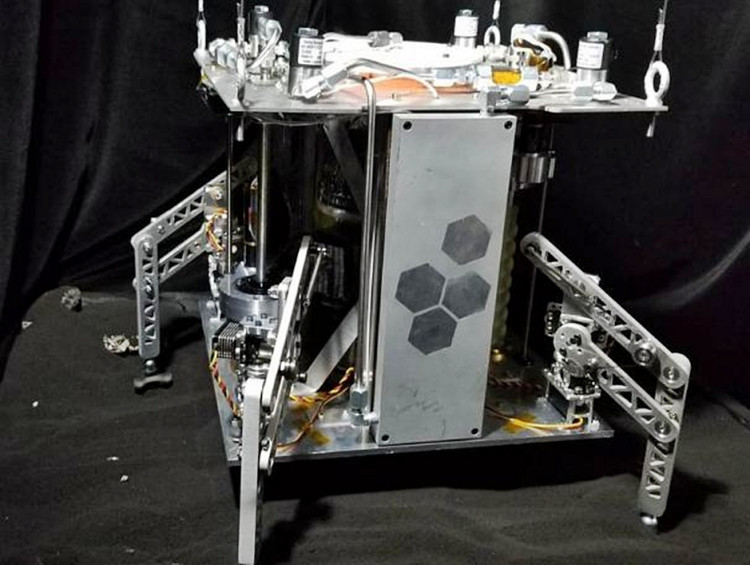American scientists have developed the world's first "steam-powered spacecraft" that can theoretically explore celestial objects such as asteroids "forever" since they won't ever run out of rocket fuel.
Working together, researchers from the University of Central Florida (UCF) and Honeybee Robotics Spacecraft Mechanisms Corporation, a small spacecraft and tech firm based in California, have developed a prototype of the "World Is Not Enough" (WINE) spacecraft.
WINE is designed to extract water from asteroids and other planetary bodies to generate steam and propel itself to its next mining target. It was tested at a facility at the University of Central Florida in December 2018 and practiced on a mock-up asteroid surface. Its creators said WINE passed its test with flying colors.
"It's awesome," said UCF planetary scientist Phil Metzger.
He said the WINE prototype successfully mined the soil; made rocket propellant, and launched itself on a jet of steam extracted from the stimulant. Metzger said this technology can potentially be used to hop on the Moon, Ceres, Europa, Titan, Pluto, the poles of Mercury, asteroids and anywhere there is water and sufficiently low gravity.
WINE is the size of a microwave oven. It mines water from the surface of an asteroid and then turns it into steam to fly to a new location and repeat. It, therefore, becomes a rocket that never runs out of fuel and can theoretically explore anywhere "forever."
WINE uses deployable solar panels to generate enough energy for mining and making steam. As an alternative, it might use small radioisotopic decay units to extend the potential reach of these planetary hoppers to Pluto and other locations far from the Sun.
Metzger spent three years developing the technology needed to transform the idea into reality. He said the development of this type of unusual spacecraft might have a profound impact on future exploration.
Currently, interplanetary missions stop exploring once the spacecraft runs out of rocket fuel or propellant.
Metzger said WINE was designed to never run out of propellant, thereby making exploration less expensive. WINE will also allow firms to explore in a shorter amount of time since they don't have to wait for years as a new spacecraft travels from Earth each time.
UCF's partner, Honeybee Robotics focuses on developing drilling tools and systems for finding life, as well as space mining for resources. Honeybee previously deployed and operated Rock Abrasion Tool (RAT) on Mars Exploration Rovers (MERs) and the Icy Soil Acquisition Device (ISAD) on Mars Phoenix, among many others.





